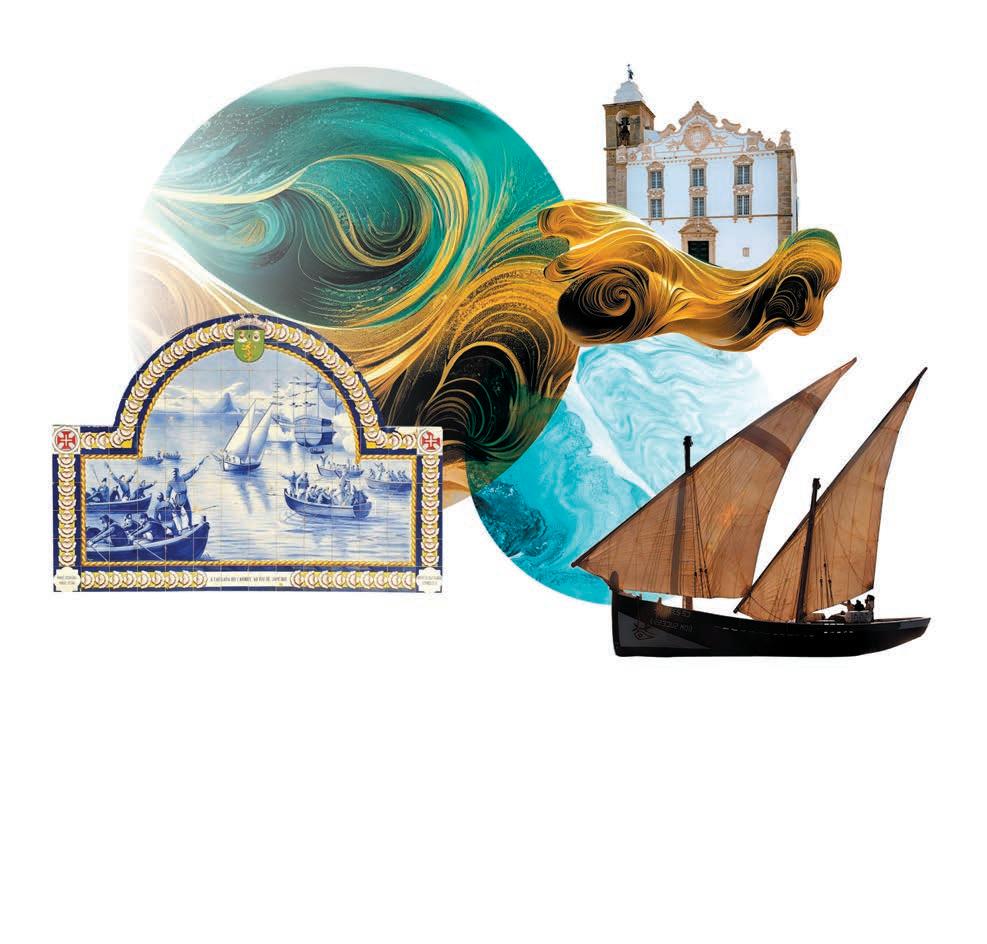
7 minute read
Heroics in Olhão
by Martin
MUCH HAS BEEN MADE OF THE FISHERMEN FROM OLHÃO, WHO CROSSED THE ATLANTIC IN A SAILING BOAT, BUT THAT IS THE END OF A MUCH BIGGER AND BRAVER STORY. IT FOLLOWED AN AMAZING SERIES OF EVENTS, WELL DOCUMENTED AT THE TIME BUT RARELY REFERRED TO NOWADAYS
Words: CAROLYN KAIN
TO UNDERSTAND what happened all those years ago, picture Olhão early in the 1800s. It was an established settlement of fishermen and their families, relying on the sea for their existence. The only substantial buildings there at the time were the Compromisso Marítimo, providing health and administrative services, and nearby Olhão’s parish church.
February 1st: It was 1808 and across the country Napoleon’s victory was to bring about enormous changes. The Portuguese royal family fled to Brazil, the army was defeated and most Portuguese people in authority were under the control of the French.
Once the main French forces left, 700 troops remained in the Algarve to subdue any possible uprisings. Keeping the population in order, they issued decrees, levied new taxes and , unsurprisingly, were universally disliked. The soldiers were mostly billeted along the border by the river Guadiana and in barracks in the east of the region, in Vila Real de Santo António, Tavira and Faro.
In Olhão, the collection of taxes from fishermen who lived a subsistence lifestyle caused a great deal of hardship. Officials were diligent in their duties, threatening anyone found guilty of smuggling or failing to pay their taxes with the death penalty.
April 14th: Worse still was when a group of 20 soldiers entered Olhão and proceeded to loot people’s homes and steal silver from the church. This generated feelings of hatred as never before.
Word reached the people of Olhão that across the border in Andalucía, the Spanish were revolting against their French oppressors. Two fishing boats arrived from Porto bringing news that the population there was doing the same thing.
June 12th: Perhaps inspired by this information – and defying an edict laid down by the French – the coat of arms belonging to the Portuguese royal family was put on display inside Olhão’s church. Despite it being forbidden, several bold fishermen followed the church’s lead and hoisted the Portuguese flag on their boats.
June 16th: Prepared for a confrontation, the fishermen were not surprised when a French Captain arrived outside the church with a detachment of soldiers. Trying to deescalate the situation he posted a notice that flattered the Portuguese and invited them to join forces to subdue the Spanish. The reaction was not what he expected.
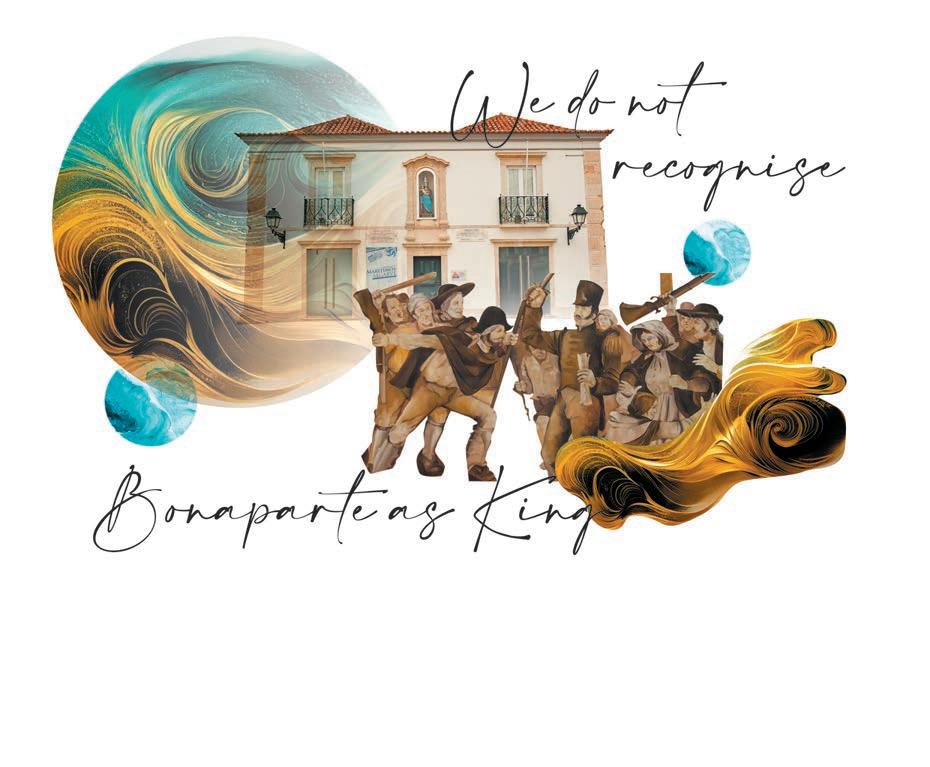
The notice was torn down and a crowd of fishermen, armed with a wide variety of homemade weapons –slingshots, pitchforks, crossbows – began to riot. The church bells rang continuously summoning others in the surrounding area to come to the church square. Taken completely by surprise, the Captain and his men were overwhelmed. Fifty soldiers were captured and imprisoned, and of those who escaped, some headed to Faro while others ventured to Tavira where reinforcements could be summoned.
June 17th: Simultaneously, a group of fishermen from Olhão sailed to Ayamonte to ask the rebel leaders there for their assistance. The Spanish, delighted to hear of their revolt, supplied them with 130 shotguns.
June 18th: The following day, the same weapons were used by the fishermen in a battle out on the Ria Formosa. In an unexpected attack, three vessels coming from Tavira and containing the French reinforcements were overpowered. Eighty-one soldiers were captured and all their arms and ammunition confiscated. On land – and hearing that more French soldiers from Faro were heading for Olhão – the people went out to ambush them on the bridge at Quelfes. Once more using surprise as a weapon, they held the upper hand and killed 25 soldiers. Pursuing others as they tried to run away, 18 more were killed and 12 were wounded.
June 19th: A small group of injured and bedraggled soldiers returned to Faro, where the consensus was that the people of Olhão should be pacified at all costs. At least until more reinforcements arrived from Mértola in the Alentejo.
A message was sent to Olhão’s priest offering the people a pardon and certain benefits, but with a single voice they were determined to carry on. The return message stated as follows: “We do not recognise Bonaparte as King. We are ready in the field to go to war for Prince D. João of Portugal and the entire royal family.”
The resolve of this reply caused the French to wonder. Had a British warship landed in Olhão to lend the people their assistance? Rumors started by some women from Olhão circulated in Faro that this was the case. Anxiety amongst the French was running high.
That night, although a few armed men stood on duty in Olhão, the rest of the population judged it to be safer to put out to sea.
June 20th: In the half light of morning the line of fishing boats was spotted by the French and thought to be the English fleet. Adding to the illusion the red shawls worn by the women on board were mistaken for the jackets of English soldiers.
Panic set in as the French realised that reinforcements from Mértola must still be a long distance away. Spotting their weakness, the people of Faro used this moment to rebel, ringing the bells of the Carmo church, rioting in the streets, assaulting the French and successfully capturing and imprisoning 170, including a General.
Severely weakened and afraid, many of the French fled the Algarve and over the next few days, as word spread around the province, more and more of them took flight.
July 7th: Certain that the Algarve was now in the safe hands of the Portuguese people, the brave fishermen of Olhão set off for Brazil. There they would find their beloved royal family and encourage them to return home. They didn’t… but that’s another story!
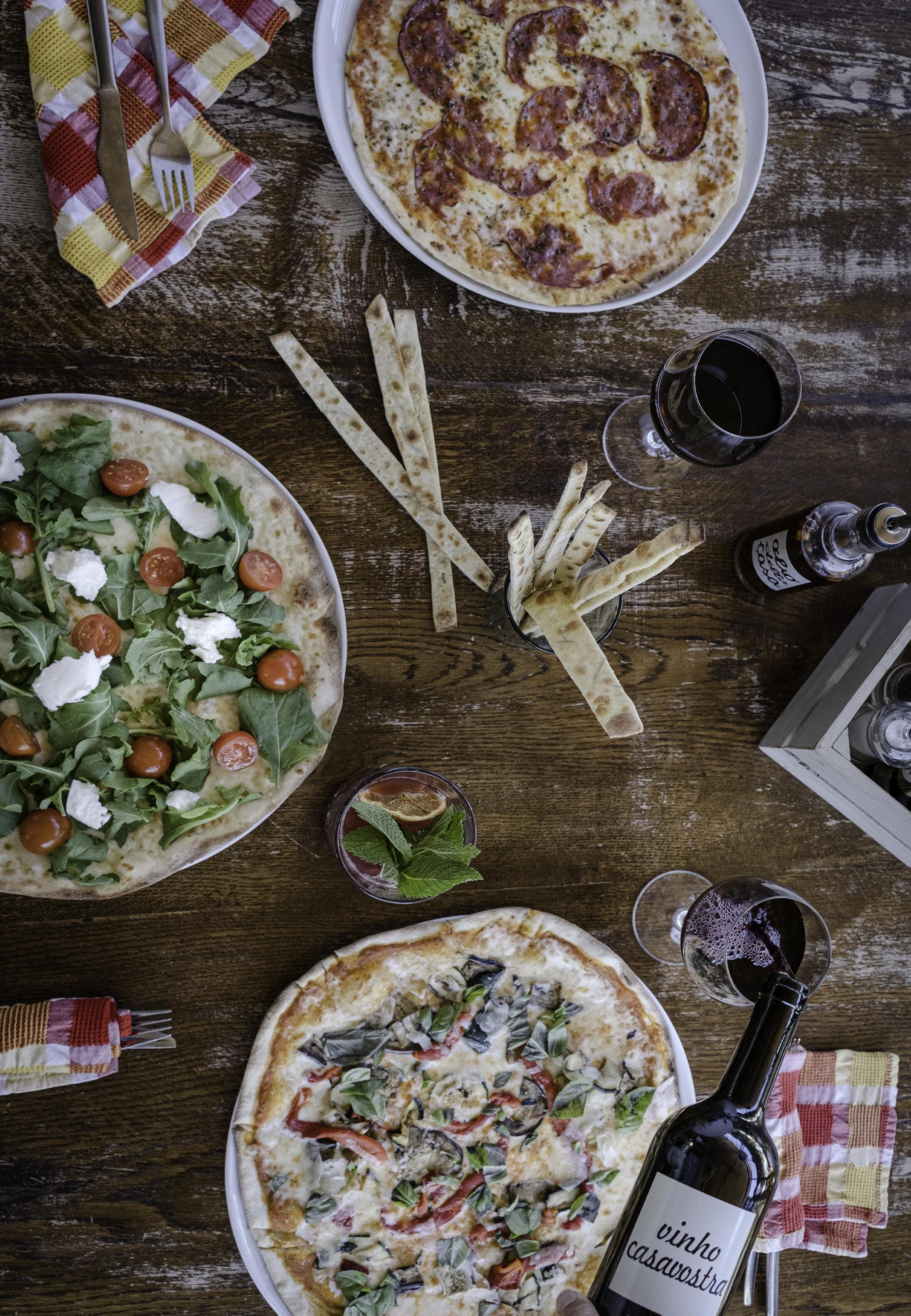

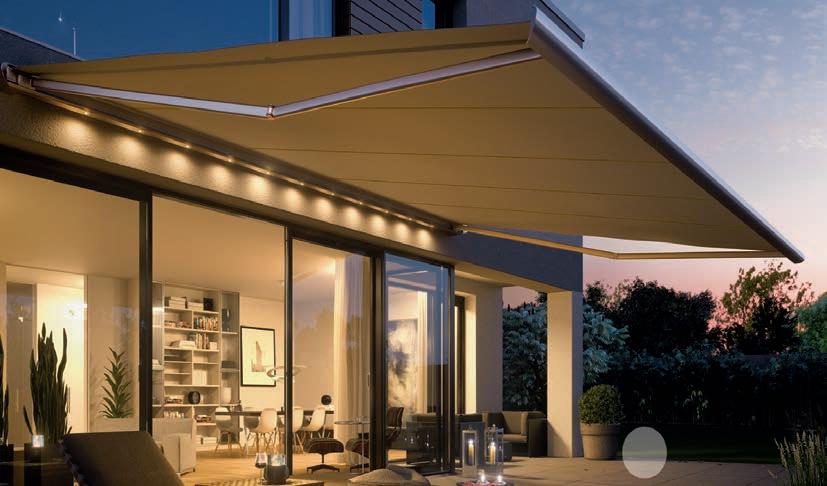
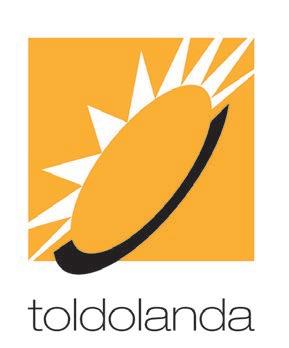
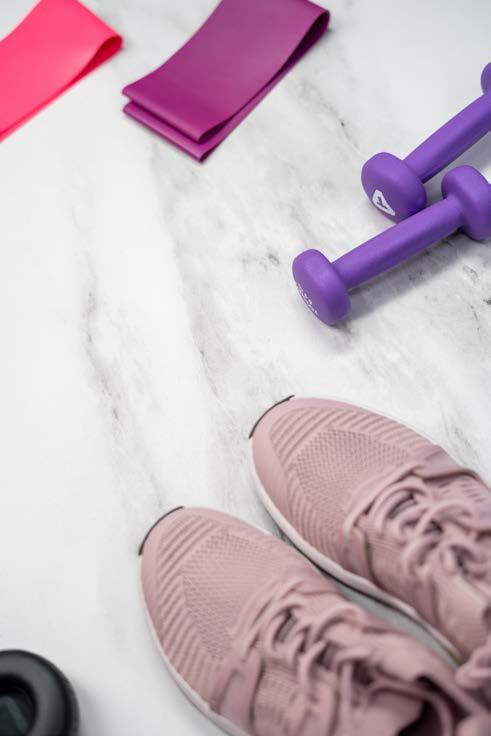
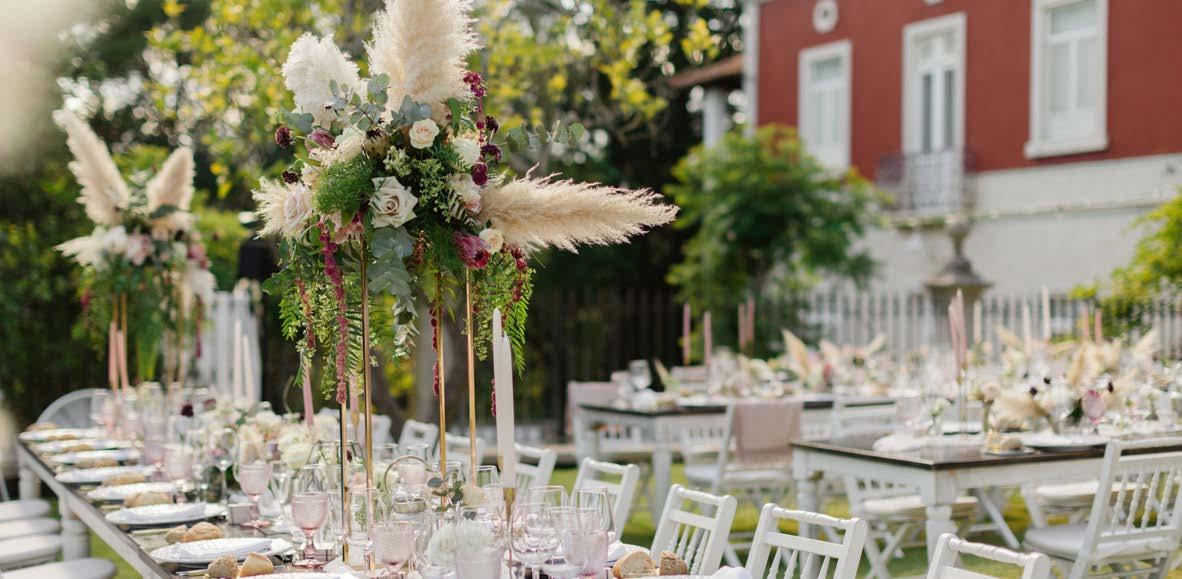
HILDEGARD BORKENT OF SEVEN QUINTAS PROPERTY SEARCH IN ALMANCIL REALLY LOOKS AFTER HER CLIENTS – SELLERS AND BUYERS –ENSURING THAT THEY GET THE BEST POSSIBLE SERVICE... AND PRICES
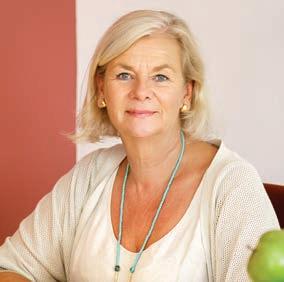
1 When was Seven Quintas formed? In January 2007. The name comes from the Portuguese saying: “Estar nas suas Sete Quintas” – to be in your seven farmhouses, meaning: to be in seventh heaven.
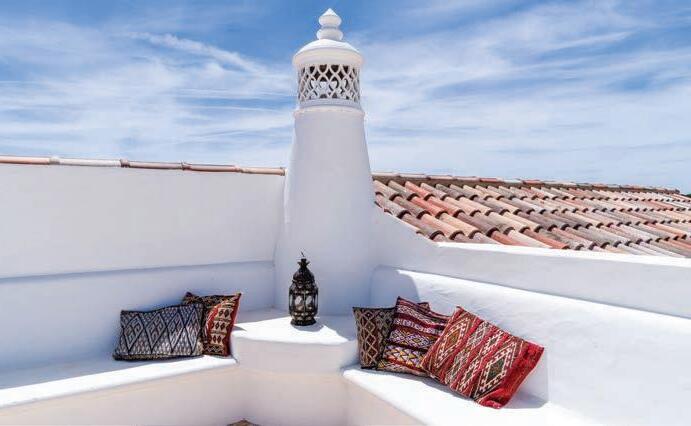
2 Were you in real estate before? I was in customer relationships and sales in a B2B market for an American company in Amsterdam. When I moved to the Algarve I worked in real estate in Quinta do Lago and studied to get my own license.
3 So when did you move here and what attracted you? My first trip was in 1995. I fell in love with a Portuguese man and with the Algarve and I moved here in 2000.
4 Is the market booming as much as reported in the media? We have seen prices rocket since 2014. This is a great place to raise a family and not just a golf destination for the retired!
5 What type of property is most in demand? It really depends on what the client is looking for. We specialise in “handpicked properties”.
6 Do buyers want ‘projects’ or the finished thing? It varies. Some are looking for property to develop or refurbish for investment, others want something ready to move into.
7 How important is ‘dressing’ for selling? If ‘staged’ one has a better perception of room sizes. If the house is lived in, it is more about getting rid of the 'clutter'.
8 What nationalities are your key audience? We have all nationalities. We saw an increase of French nationals buying from 2014 and since 2020 the Americans are flocking here. This year we have quite a few Dutch, too, as well as Portuguese clients.
9 Is it all about location, location, location? Everyone has their preferences and their own idea of the perfect place.
10 Where is your most expensive property currently? It’s a very exclusive villa in the countryside.
11 Is there a big value difference between coastal resorts and the hills? Resorts like Quinta do Lago and Vale do Lobo top the list, followed by Vilamoura. In the hills one can still find value for money and privacy, although some country properties are getting close to QdL and VdL prices.
12 Advice to owners looking to sell, and sell fast? Make sure the house and garden are looking their very best. And price your property realistically!
13 Do some clients buy without viewing? During covid we did viewings by video call and did sell that way.
14 Do you have lawyers to help with the formalities? Yes, we work with various lawyers to make the buying process a safe, secure and smooth one.
15 Can you help a buyer who wants a ruin to develop? Yes, we can advise them – the rules are getting stricter by the day, and one has to have quite some stamina to sit through the process.
16 If an interior is a bit tired, what then? We can help owners find the right team to handle interior decoration and refurbishing, within their style and budget.
17 How many properties do you have on your books right now? 29 on our website, and many more ‘silent’ listings, which many owners prefer.
18 What price range do they cover? €250,000 to €4,000,000.
19 What if a house does not match the plans held the Câmara? We ask owners for the ‘telas finais’, the plans held at the municipality and against which the habitation license has been granted. If the owners don’t have them, we ask at the council, so we can see if the existing property matches the official plans. A purchaser buys what is on the plans, anything else is an ‘extra’. A carport is not a big deal, but an illegal pool is. We inform the potential purchaser about the situation and they decide if they wish to buy the property.
20 How do you reach out to potential buyers/sellers? Via our website, property portals, social media, in print and on billboards. Also, many listings come through our network of clients who bought their property with us and want to sell after ten or 15 years! You will find our advertising, starring our iconic Sardine key hanger, in our preferred magazine: AlgarvePlus!
Rural Life
Taken: Moncarapacho, 2022
Camera: Nikon D850
“Little old ladies can walk their dogs in safety in the evening; the only sound comes from the birds and the cicadas.”
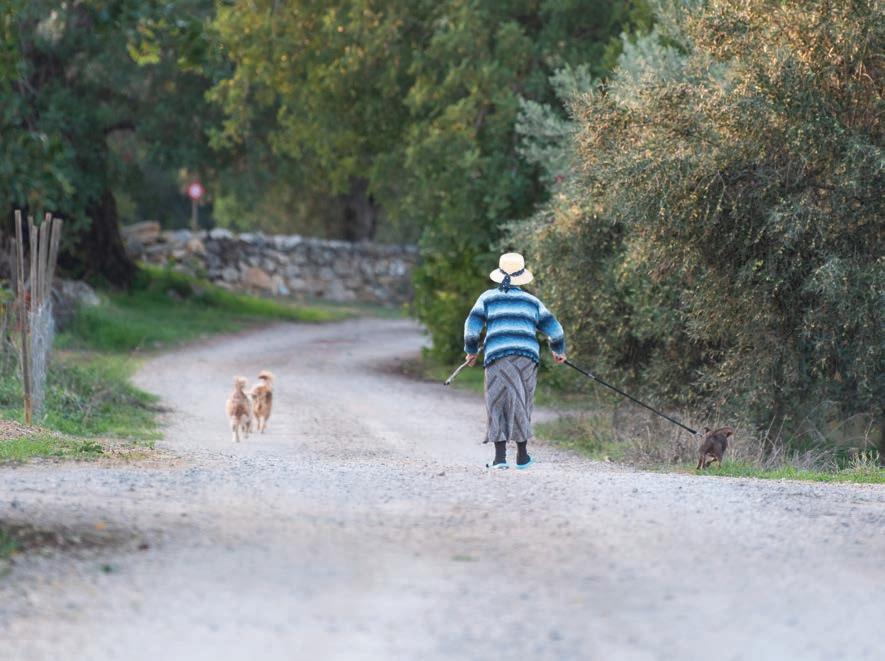
Keyword: Tranquillity
After a career in international health research, Robert Pool and his partner settled in the eastern Algarve in 2021, attracted by the quiet rural lifestyle, the flat coastline with its sandbanks and wetlands, the local history, the unpretentious but delicious food and, above all, the warm and friendly people









